How Are NFTs Taxed?

Table of Contents
- Overview of NFTs and Their Rise in Popularity
- Understanding NFTs
- Tax Authorities and NFT Guidance
- Taxable Events Related to NFTs
- Income vs. Capital Gains
- NFT Creators and Artists
- NFT Collectors and Investors
- NFT Staking, Lending, and Other Utility
- NFT Marketplaces and Reporting
- Cross-Border NFT Tax Considerations
- NFT Donations, Gifts, and Inheritance
- NFT Tax Software and Tracking Tools
- Avoiding Common NFT Tax Mistakes
- Voluntary Disclosure and Correcting Mistakes
- Tax-Advantaged Strategies for NFT Investors
- Future of NFT Taxation
- Conclusion
Overview of NFTs and Their Rise in Popularity
Non-Fungible Tokens (NFTs) have emerged as a revolutionary concept in the digital world, providing a new way to represent ownership of unique digital assets on a blockchain. Unlike cryptocurrencies such as Bitcoin or Ethereum, which are fungible and interchangeable, NFTs are one-of-a-kind tokens that can represent art, collectibles, virtual real estate, music, in-game items, and even intellectual property. Each NFT contains distinct information and metadata, which ensures its uniqueness and verifiable ownership.
The NFT market has grown exponentially over the past few years. Platforms like OpenSea, Rarible, and LooksRare have facilitated millions of transactions, creating a multi-billion-dollar industry. High-profile NFT sales, such as digital art pieces selling for millions of dollars, have attracted attention from investors, artists, and mainstream media alike. Beyond art, NFTs have expanded into gaming, music, sports collectibles, and metaverse applications, making them a versatile asset class with both cultural and financial significance.
Why NFT Taxation Matters for Collectors, Creators, and Investors
The growth of NFTs has created new tax obligations for those who buy, sell, or earn income from these digital assets. Tax authorities worldwide, including the IRS in the United States and the CRA in Canada, treat NFTs as taxable property, meaning that any gains, income, or transactions associated with NFTs may trigger tax liabilities.
For creators, NFT sales often constitute income, particularly when NFTs are minted and sold regularly as part of a business or professional activity. Collectors and investors, on the other hand, may be subject to capital gains tax when they sell NFTs at a profit. Even seemingly minor transactions, such as exchanging one NFT for another or using NFTs for purchases, can create taxable events. Understanding how NFT taxation works is critical to avoid penalties, ensure compliance, and implement effective tax planning strategies.
Additionally, NFT transactions are typically conducted on blockchain platforms, making them traceable and transparent. This transparency means that tax authorities can increasingly track NFT activity, emphasizing the importance of accurate reporting and record-keeping. Without proper tax planning, both creators and collectors risk facing audits, fines, or unexpected tax bills.
Differences Between NFTs and Other Crypto Assets from a Tax Perspective
Although NFTs are built on blockchain technology like cryptocurrencies, their taxation differs in key ways. Cryptocurrencies are generally treated as currency or property, with gains realized primarily when they are sold, exchanged, or used for purchases. NFTs, being non-fungible, present additional complexities:
-
Unique Asset Valuation: Unlike crypto coins, each NFT is unique, making the determination of fair market value more subjective. Valuation at the time of sale or transfer is critical for accurate tax reporting.
-
Income vs. Capital Gains: NFT creators may recognize income when minting and selling NFTs, whereas collectors may experience capital gains when reselling NFTs. Differentiating between income and capital gains is more nuanced than for fungible cryptocurrencies.
-
Royalty and Residual Payments: Many NFTs include royalty mechanisms that provide creators with a percentage of future sales. These ongoing payments introduce recurring income considerations for tax purposes.
-
Complex Transactions: NFT-related activities such as fractional ownership, cross-chain transfers, and NFT staking can create multiple taxable events that require careful documentation.
Understanding these differences is essential for anyone engaged in NFT transactions. Proper awareness ensures compliance with tax laws and enables creators, collectors, and investors to optimize their financial strategies without incurring unnecessary liabilities.
Understanding NFTs
What is an NFT? Digital Ownership Explained
A Non-Fungible Token (NFT) is a unique digital asset represented on a blockchain, offering verifiable proof of ownership and authenticity. Unlike traditional digital files, which can be copied infinitely without any record of ownership, NFTs are one-of-a-kind. Each token has a unique identifier that distinguishes it from every other token, even if the underlying content appears identical.
NFTs are created, or "minted," through smart contract on blockchains like Ethereum, Solana, or Polygon. Minting generates a record of ownership and metadata on the blockchain, ensuring the NFT cannot be duplicated, tampered with, or altered without consensus from the network. Ownership of an NFT is therefore permanent, traceable, and publicly verifiable.
When a buyer purchases an NFT, they acquire ownership of that token as recorded on the blockchain. Depending on the NFT and the creator’s terms, this may include certain rights such as:
-
Display rights: Permission to publicly showcase the NFT.
-
Commercial rights: Limited ability to sell, license, or monetize the content.
-
Royalties: Automatic payments to the creator whenever the NFT is resold on secondary markets.
From a taxation perspective, this digital ownership is crucial because it establishes the legal basis for determining income, capital gains, or business revenue.
How NFTs Differ from Cryptocurrencies and Traditional Assets
While NFTs and cryptocurrencies share the same blockchain technology, their economic and tax characteristics differ significantly:
-
Fungibility and Interchangeability:
-
Cryptocurrencies like Bitcoin or Ethereum are fungible, meaning each unit is identical and interchangeable. One Bitcoin is always equal in value to another.
-
NFTs are non-fungible; each token is unique, often tied to a specific digital file or asset. This uniqueness directly impacts valuation, taxation, and reporting.
-
-
Valuation:
-
Cryptocurrency prices are uniform and determined largely by supply and demand dynamics across exchanges.
-
NFT valuations are subjective, based on factors like scarcity, creator reputation, popularity, and utility within specific platforms. Tax authorities may require professional appraisals or fair market value assessments when determining gains.
-
-
Ownership Rights and Legal Implications:
-
Cryptocurrencies primarily serve as digital money or a store of value.
-
NFTs confer ownership of a particular digital asset, sometimes including limited commercial rights, making them closer to intellectual property in nature. This distinction is important for tax treatment and regulatory compliance.
-
-
Transaction Complexity:
-
NFT transactions can involve royalties, auctions, and fractional ownership, unlike typical cryptocurrency trades.
-
Tracking these complex transactions is critical for accurate reporting and tax compliance.
-
-
Tax Reporting:
-
Cryptocurrencies are generally treated as property or currency for tax purposes.
-
NFTs may trigger capital gains taxes, business income, or even income from intellectual property, depending on whether the owner is a collector, investor, or creator.
-
Common NFT Categories and Their Tax Implications
NFTs exist in several categories, each with unique market dynamics and tax considerations:
-
Digital Art:
-
Includes illustrations, paintings, animations, and generative art.
-
Creators may earn income from initial sales and royalties on secondary sales.
-
Collectors may face capital gains taxes when selling NFTs at a profit.
-
-
Collectibles:
-
Limited-edition digital items, trading cards, or memorabilia.
-
Value is often determined by rarity and market demand.
-
Gains from sales may be treated as capital gains or ordinary income, depending on frequency and intent.
-
-
Gaming Assets:
-
Virtual items like characters, skins, weapons, or power-ups in blockchain games.
-
NFTs can be bought, sold, or used in-game, sometimes generating passive income or rewards.
-
Tax implications may include capital gains on sales and income recognition on in-game rewards.
-
-
Music and Audio NFTs:
-
Artists tokenize albums, songs, or exclusive audio content.
-
NFT sales and royalties are often considered business income for creators and capital gains for buyers.
-
-
Virtual Real Estate and Metaverse Assets:
-
Includes parcels of digital land or property in virtual worlds like Decentraland or The Sandbox.
-
Owners may develop, lease, or sell these assets.
-
Tax treatment can be complex, often involving capital gains and potential business income if the activity is commercial.
-
-
Fractionalized NFTs:
-
A single NFT can be divided into multiple tokens, allowing multiple owners to hold shares.
-
Each fractional token may have separate tax implications, especially when traded on secondary markets.
-
NFT Marketplaces and Platforms
NFTs are typically bought and sold on specialized online marketplaces. These platforms facilitate minting, listing, bidding, and secondary sales. Some key marketplaces include:
-
OpenSea:
-
One of the largest NFT marketplaces, supporting art, collectibles, virtual worlds, and more.
-
Provides transaction history, ownership verification, and royalty tracking.
-
-
Rarible:
-
Decentralized platform allowing creators to mint NFTs directly and earn royalties.
-
Community-driven governance and lower platform fees for certain collections.
-
-
LooksRare:
- Focuses on rewarding users for trading NFTs, with incentives for active community participation.
-
Other Marketplaces:
- Foundation, SuperRare, Nifty Gateway, Solanart, and Magic Eden (for Solana NFTs) cater to different niches or blockchains.
These marketplaces maintain transaction records that are critical for tax reporting. Buyers and sellers must keep accurate records of purchase price, sale price, fees, and royalties earned or paid.
Benefits and Challenges of Understanding NFTs
Benefits:
-
Clear understanding helps collectors and creators comply with tax laws and avoid penalties.
-
Proper record-keeping can maximize potential deductions and minimize tax liability.
-
Awareness of NFT types and marketplaces allows investors to plan portfolio growth effectively.
Challenges:
-
NFT valuations are subjective and may fluctuate drastically.
-
Royalties and secondary sales introduce ongoing income reporting obligations.
-
Fractionalized NFTs and cross-chain transactions increase complexity for tax compliance.
Need help navigating NFT taxes? Book a free consultation with Block3 Finance today and let our experts handle your NFT reporting, optimize your tax strategy, and ensure full compliance with all regulations.
Tax Authorities and NFT Guidance
Overview of Global Approaches to NFT Taxation
NFT taxation is still a developing area worldwide, as authorities struggle to define and classify these unique digital assets. Different countries have adopted varying approaches depending on their regulatory frameworks for digital assets, cryptocurrencies, and property.
-
United States:
-
The IRS treats NFTs as property, similar to cryptocurrencies.
-
The sale of an NFT triggers a capital gain or loss if sold for fiat currency or other property.
-
NFTs received as compensation, rewards, or airdrops may be considered ordinary income at fair market value at the time of receipt.
-
Reporting requirements include Schedule D and Form 8949 for capital gains, or Form W-2/1099 for income from NFT compensation.
-
-
Canada:
-
The CRA views NFTs as property, with tax implications similar to cryptocurrencies and capital assets.
-
NFT creators who regularly sell or mint NFTs may be considered carrying on a business, making income from sales taxable as business income rather than capital gains.
-
Collectors and investors must track acquisition costs and sale proceeds for accurate reporting on Schedule 3 of the T1 personal tax return.
-
-
European Union:
-
EU member states are individually interpreting NFT taxation, but general VAT and capital gains rules often apply.
-
Certain countries, like Germany, may treat NFTs held for investment as private sales with potential tax exemptions after one year.
-
Artists and creators may be liable for VAT or other sales taxes when selling NFTs to collectors.
-
-
Other Notable Countries:
-
Australia: Treats NFTs similarly to cryptocurrency; capital gains are taxable, and NFT income may qualify as business income if traded regularly.
-
United Kingdom: HMRC considers NFTs as intangible assets, potentially triggering Capital Gains Tax (CGT) on sales and income tax on earnings from NFT creation.
-
Singapore: Currently no capital gains tax, but NFT trading may still trigger income tax if considered a business activity.
-
IRS Guidance on NFTs in the United States
The IRS issued guidance confirming that NFTs are treated as property for tax purposes:
-
Capital Gains: Selling an NFT for more than the acquisition cost triggers capital gains tax.
-
Income Reporting: NFTs received as payment for services or airdrops are considered ordinary income at fair market value.
-
Crypto Swaps: Exchanging NFTs for cryptocurrency or other NFTs may trigger taxable events similar to crypto-to-crypto trades.
-
Record-Keeping: Taxpayers are expected to maintain detailed records of NFT transactions, including dates, prices, associated fees, and wallet addresses.
The lack of NFT-specific rules creates gray areas, particularly for fractionalized NFTs, staking rewards tied to NFTs, and secondary market royalties.
CRA and Other Country-Specific Guidance
Canada’s CRA has acknowledged that digital assets, including NFTs, are considered property. Key points include:
-
Business vs. Investment: Frequent NFT sales by creators may be taxed as business income. Occasional sales by collectors may be subject to capital gains tax.
-
Royalties: Automatic royalties from secondary sales must be included as income for creators.
-
Valuation: NFT fair market value at the time of acquisition or receipt is critical for both capital gains and income recognition.
Other countries face similar challenges due to the novelty and complexity of NFTs. Regulators are often relying on existing property, intellectual property, and cryptocurrency tax frameworks, adapting rules as NFT adoption grows.
Challenges Regulators Face in Defining NFT Tax Rules
-
Valuation Issues: NFT prices can fluctuate wildly within minutes. Determining fair market value for tax purposes is difficult.
-
Multiplicity of Uses: NFTs can be used as collectibles, access passes, gaming assets, or intellectual property, each carrying different tax implications.
-
Royalties and Automated Payments: Smart contracts pay creators automatically upon resale, creating recurring income streams that must be tracked.
-
Fractional Ownership: Shared ownership of a single NFT complicates reporting and capital gains calculation.
-
Cross-Border Transactions: NFT buyers and sellers may reside in different jurisdictions, triggering complex international tax considerations.
Key Takeaways:
-
NFT taxation remains largely undefined globally.
-
Authorities often classify NFTs as property, but the type of income depends on the activity (investor, collector, or creator).
-
Detailed record-keeping is essential for compliance.
Taxable Events Related to NFTs
Selling an NFT for Fiat Currency: Capital Gains Implications
When an NFT is sold for fiat currency (USD, CAD, EUR, etc.), the transaction triggers a taxable event:
-
Calculation of Capital Gains:
-
Capital Gain/Loss = Sale Price – Acquisition Cost – Fees
-
Example: If you purchased an NFT for $2,000 and sold it for $5,000, the $3,000 difference is taxable.
-
-
Short-Term vs. Long-Term:
-
Certain jurisdictions differentiate between short-term and long-term capital gains based on holding period.
-
Short-term gains may be taxed at ordinary income rates, while long-term gains may benefit from reduced rates.
-
-
Deductible Costs: Transaction fees, gas fees, and other related costs can reduce taxable gains.
Selling an NFT for Crypto: Tax Consequences of NFT-to-Crypto Swaps
Exchanging an NFT for cryptocurrency triggers a taxable event in most jurisdictions:
-
The NFT is considered sold at fair market value at the time of the swap.
-
Any gain is calculated similarly to a fiat sale: Sale Price (in crypto value) – Acquisition Cost – Fees.
-
Subsequent disposition of the received cryptocurrency may trigger additional taxable events.
-
Example: Selling an NFT for 1 ETH when 1 ETH = $3,000. If the NFT was originally purchased for $1,500, the $1,500 gain is taxable. Later, selling ETH for fiat will create another capital gain/loss.
NFT Gifting and Donations: Tax Considerations
-
Gifting NFTs:
-
Gifts may not trigger immediate taxation for the giver, but the recipient may inherit the original cost basis, affecting future capital gains.
-
Some countries impose gift tax if the value exceeds a certain threshold.
-
-
Donations to Charities:
-
Donating an NFT may allow tax deductions equal to the fair market value at the time of donation.
-
Documentation and valuation are essential to support tax claims.
-
NFT Airdrops, Rewards, and Initial Drops
-
Airdrops: NFTs received for free as part of promotions or marketing campaigns are considered taxable income.
-
Initial NFT Drops (Primary Sales): If you are the creator, revenue from initial NFT sales is treated as business income.
-
Royalties from Secondary Sales: Smart contract-generated royalties are recognized as income each time a sale occurs.
-
Valuation: The fair market value at the time of receipt is used to calculate taxable income.
-
Example: Receiving a promotional NFT worth $500 in an airdrop counts as $500 income at receipt. Later selling it for $800 triggers an additional $300 capital gain.
Key Takeaways
-
Every NFT transaction may trigger a taxable event: sale, swap, gift, donation, airdrop, or royalty payment.
-
Accurate records of purchase price, sale price, fees, and date of transactions are crucial.
-
Misreporting NFT transactions can lead to penalties, audits, or interest charges from tax authorities.
Income vs. Capital Gains
Determining if NFT Sales Count as Income or Capital Gains
NFT taxation depends heavily on the taxpayer’s role, frequency of transactions, and purpose of holding:
-
Capital Gains Treatment:
-
Applies when NFTs are held as investments rather than part of a business.
-
Gains are realized when the NFT is sold for fiat currency, crypto, or exchanged for other NFTs.
-
Calculation: Capital Gain = Sale Price – Acquisition Cost – Transaction Fees.
-
Example: A collector buys a digital artwork NFT for $2,000 and sells it two years later for $6,000. The $4,000 difference is a capital gain.
-
-
Income Treatment:
-
Applies when NFTs are sold as part of a business, frequent trading activity, or creation of NFTs for profit.
-
Income is reported at fair market value at the time of sale or receipt.
-
Example: An NFT artist mints and sells multiple NFTs as part of their business. Each sale counts as business income, regardless of holding period.
-
Differences Between NFT Creators, Traders, and Long-Term Investors
| Role | Tax Treatment | Key Considerations |
| Creators / Artists | Business income | Includes primary NFT sales and royalties; deductible business expenses allowed. |
| Active Traders / Flippers | Income or business | Frequent buying and selling may classify as trading income rather than capital gains. |
| Long-Term Collectors / Investors | Capital gains | Gains taxed only when NFTs are sold; losses can offset gains in some jurisdictions. |
Factors Influencing Tax Classification:
-
Frequency of sales and volume of transactions
-
Intent of holding NFTs (investment vs. profit-making activity)
-
Marketing or promotional activity surrounding NFT sales
-
Professional creation or provision of NFT-related services
Case Studies: Income vs. Capital Gains Scenarios
-
Investor Scenario: Jane buys 5 NFTs as collectibles, holds them for 3 years, and sells one NFT for profit. This counts as a capital gain.
-
Trader Scenario: Mike flips NFTs weekly, buying low and selling high. The tax authority may treat his profits as ordinary income.
-
Creator Scenario: Emma mints 50 NFTs and earns ongoing royalties. All proceeds are reported as business income, with associated expenses deducted.
Key Takeaways:
-
Properly identifying your role (creator, trader, investor) is critical to determining tax treatment.
-
Accurate record-keeping of dates, prices, fees, and sales is essential to comply with tax laws.
NFT Creators and Artists
Tax Implications of Selling NFTs as a Creator
NFT creators are often treated as small business operators for tax purposes. Income from primary NFT sales and ongoing royalties is generally taxable as business income.
-
Primary Sales:
-
Proceeds from the initial sale of an NFT are taxable.
-
Fair market value at the time of sale is used to calculate taxable income.
-
-
Royalties from Secondary Sales:
-
Automated smart contract royalties are taxable each time a sale occurs.
-
Royalty income is recognized in the reporting year when received or accrued, depending on jurisdiction.
-
Royalty Structures and Recurring NFT Revenue
-
NFT platforms often provide recurring royalty payments (e.g., 5–10% per secondary sale).
-
Each royalty payment is considered income at fair market value, even if received in cryptocurrency.
-
Example: A creator earns 0.5 ETH in royalties when 1 ETH = $3,000. This counts as $1,500 income.
Deductible Expenses for NFT Creation
Creators can reduce taxable income by deducting legitimate business expenses directly related to NFT production:
-
Minting Fees: Gas fees paid to record NFTs on a blockchain
-
Marketing Costs: Paid ads, influencer promotions, website maintenance
-
Software and Tools: Design software, 3D modeling tools, music production software
-
Professional Services: Legal, accounting, or advisory fees related to NFT business
Example: Emma spent $1,000 on minting and $500 on marketing. If she earned $10,000 from NFT sales, her taxable business income reduces to $8,500.
Business vs. Hobby Classification for NFT Creators
-
Business Classification: Frequent NFT sales, active promotion, and structured revenue generation generally qualify as a business.
-
Hobby Classification: Occasional NFT creation or sales without profit motive may be treated as a hobby, where income may still be taxable, but expenses may not be deductible.
-
Key Test: Authorities evaluate frequency, intent, and commercialization of NFT activity to determine classification.
Key Takeaways:
-
NFT creators should maintain detailed records of all sales, royalties, and related expenses.
-
Business classification provides tax deduction opportunities but requires proper reporting and compliance.
-
Understanding whether your NFT activity is a hobby or business ensures correct tax treatment.
If you’re an NFT creator, investor, or collector and want to ensure your NFT activities are correctly reported for tax purposes, professional guidance is crucial. Book a free consultation with Block3 Finance today to get tailored advice on maximizing tax efficiency, staying compliant, and confidently managing NFT income.
NFT Collectors and Investors
Tracking NFT Purchases and Sales for Tax Purposes
NFT collectors and investors must maintain accurate records of all transactions to calculate gains, losses, and taxable income correctly:
-
Purchase Records: Include date, cost, platform fees, blockchain transaction fees, and method of payment (fiat or crypto).
-
Sale Records: Document date of sale, sale price in fiat equivalent, platform fees, and any taxes withheld.
-
Exchange Transactions: If an NFT is exchanged for another NFT or cryptocurrency, calculate fair market value at the time of the swap to determine gains or losses.
Example: A collector buys an NFT for 0.3 ETH at $2,500 per ETH and later sells it for 0.5 ETH when ETH is $3,000. The capital gain is calculated based on the USD or CAD equivalent at each transaction.
Using NFTs for Investment vs. Personal Collection: Tax Impact
-
Investment Purpose: NFTs held to earn profit are generally treated as capital assets. Gains are taxed when realized, and losses may offset gains in certain jurisdictions.
-
Personal Collection: NFTs held purely for personal enjoyment may still be taxable if sold, but losses typically cannot offset other gains.
Key Distinction: The intent behind holding the NFT (profit vs. personal use) is critical in determining tax treatment.
Losses, Write-Offs, and Loss Harvesting Strategies
-
Capital Losses: Occur when an NFT is sold for less than its purchase price. Losses can offset gains in the same tax year or be carried forward in many jurisdictions.
-
Loss Harvesting: Strategic sale of NFTs at a loss to reduce tax liability from other gains.
-
Example: A collector sells a declining NFT to offset gains from a high-value NFT sale, lowering net capital gains for tax purposes.
Record-Keeping Best Practices for NFT Portfolios
-
Maintain digital spreadsheets or accounting software to track NFT portfolios.
-
Record wallet addresses, transaction IDs, and screenshots of sales for audit purposes.
-
Keep detailed records of gas fees, platform commissions, and royalties, as these can adjust the cost basis.
-
Periodically reconcile wallet holdings with transaction records to ensure accuracy.
Key Takeaways:
-
Proper documentation is essential for accurate tax reporting and avoiding penalties.
-
Distinguish between investment NFTs and personal collectibles to optimize tax outcomes.
NFT Staking, Lending, and Other Utility
Tax Implications of NFT Staking and Yield Farming
-
NFTs can sometimes be used to stake in decentralized networks or protocols, earning additional tokens or rewards. Learn more about yield farming.
-
Rewards earned from staking are generally taxable as income at fair market value when received.
-
Keep detailed records of staking start dates, reward amounts, and conversion rates.
Example: A user stakes a rare gaming NFT and earns 0.2 ETH in rewards monthly. Each reward’s fair market value at the time of receipt is considered taxable income.
NFT Lending or Renting Income: Reporting and Taxable Events
-
Lending or renting NFTs to other users for a fee generates income that must be reported.
-
Taxable income is calculated as the fair market value of crypto or fiat received from the lending transaction.
-
Expenses related to lending operations (e.g., smart contract fees) may be deductible if the activity is business-related.
Example: An investor rents a virtual land NFT in a metaverse game for 1 ETH. The income is taxable at the ETH-to-fiat value at the time of rental.
Utility NFTs in Gaming and Metaverse: Tax Challenges
-
Utility NFTs used in gaming or virtual worlds may have complex tax treatment due to:
-
Integration with in-game tokens or currencies
-
Rewards, bonuses, or items earned via NFT usage
-
Cross-chain transfers and conversions
-
-
Reporting requires calculating the fair market value of each benefit received, which may fluctuate significantly over time.
Example: A player uses a utility NFT in a game to earn $500 worth of in-game tokens that are later exchanged for crypto. The $500 is considered taxable income when received.
Key Takeaways:
-
NFT staking, lending, and utility activities can create taxable income, even without selling the NFT.
-
Detailed tracking of all associated rewards, fees, and conversions is critical.
-
Tax obligations may vary based on whether the activity is personal or business-oriented.
Navigating NFT taxation for collectors, investors, and creators can be complex, especially with staking, lending, and utility NFTs. Book a free consultation with Block3 Finance today to ensure your NFT portfolio is fully compliant, accurately reported, and optimized for tax efficiency.
NFT Marketplaces and Reporting
How Marketplaces Report NFT Transactions to Tax Authorities
NFT marketplaces increasingly play a role in tax compliance by providing reporting data:
-
Transaction Summaries: Marketplaces like OpenSea, Rarible, and LooksRare generate summaries of sales, purchases, royalties, and fees.
-
User Reporting Requirements: Some platforms in regulated jurisdictions may provide users with statements reflecting proceeds for tax reporting purposes.
-
Third-Party Compliance: Certain marketplaces comply with IRS or CRA requirements, issuing Form 1099-K equivalents or transaction reports for income thresholds.
Example: In the U.S., OpenSea may report sales over $600 in a year to the IRS. While Canada does not have exact thresholds, CRA can request marketplace records during audits.
Automated Reporting Tools for NFT Traders
-
Portfolio Tracking Software: Tools such as Koinly, CoinTracker, and Dextools integrate marketplace data to calculate gains and income.
-
Benefits: Reduces human error, aggregates multi-chain transactions, and helps prepare accurate tax filings.
-
Limitations: Automated software may misclassify certain events (airdrops, staking rewards, utility NFT income), requiring manual review.
Integrating Marketplace Data into Tax Filings
-
Data Consolidation: Export CSV files or API data from marketplaces and import into tracking software or spreadsheets.
-
Reconciliation: Match marketplace data with wallet transactions to ensure all NFTs, fees, and royalties are accounted for.
-
Compliance: Accurate reporting prevents penalties and ensures consistency during audits.
Key Takeaways:
-
NFT marketplaces are a valuable resource for tracking and reporting transactions, but manual verification is essential.
-
Automation simplifies the process, but investors should understand underlying tax implications to remain compliant.
Cross-Border NFT Tax Considerations
Selling NFTs Internationally: VAT, GST, and Sales Tax Implications
-
NFT sales can trigger indirect taxes depending on buyer location and platform jurisdiction.
-
Value-Added Tax (VAT): European Union applies VAT on digital goods, which may include NFTs. Sellers must determine if VAT registration is required.
-
Goods and Services Tax (GST/HST): Canadian NFT sellers may have GST/HST obligations when selling to local buyers.
-
Sales Tax in the U.S.: Certain U.S. states treat digital assets as taxable goods, requiring local compliance.
Using Foreign Platforms and Wallets: Reporting Foreign Accounts
-
NFTs held on foreign platforms or wallets may create reporting obligations:
-
U.S. taxpayers: Must report foreign digital assets on FBAR/FATCA if thresholds are met.
-
Canadian taxpayers: May need to disclose foreign holdings on Form T1135 if NFT proceeds are converted into fiat exceeding CAD 100,000.
-
-
Implication: Holding NFTs internationally requires diligent tracking of wallet addresses, platform statements, and transaction history.
Double Taxation and Tax Treaties Relevant to NFT Trading
-
Cross-border NFT trades can result in income recognition in multiple jurisdictions.
-
Tax Treaties: Existing treaties between countries may prevent double taxation but require documentation of foreign tax paid.
-
Example: A Canadian NFT creator sells an NFT to a buyer in Germany. VAT may apply in Germany, but Canada may require reporting and provide foreign tax credits to avoid double taxation.
Key Takeaways:
-
Cross-border NFT activity complicates taxation due to VAT, GST/HST, and foreign reporting requirements.
-
Understanding tax treaties and maintaining detailed international transaction records is essential for compliance and minimizing liabilities.
NFT Donations, Gifts, and Inheritance
Tax Treatment of Gifting NFTs
-
NFTs given as gifts can create tax events depending on jurisdiction and fair market value:
-
Donor Considerations: The donor may be subject to capital gains tax if the NFT has appreciated.
-
Recipient Considerations: Generally, recipients do not have immediate tax liability, but future sales may trigger taxable events.
-
-
Valuation: Fair market value at the time of transfer is used to calculate gains.
Donations of NFTs to Charities: Eligible Deductions
-
NFTs donated to registered charities may qualify for tax deductions if properly valued:
-
Fair Market Valuation: Determined at the time of donation; independent appraisal may be required.
-
Deductible Amount: Often the fair market value of the NFT minus any outstanding fees.
-
-
Documentation: Maintain donation receipts and marketplace transfer proofs for CRA or IRS compliance.
NFTs in Estate Planning: How Inheritance Tax Applies
-
NFTs can be included in estate planning and may be subject to estate or inheritance taxes:
-
Valuation at Death: NFT market value on date of death is used to calculate estate taxes.
-
Beneficiary Tax Liability: Beneficiaries may be responsible for capital gains tax if they sell the NFT later.
-
Strategies: Use trusts or wills to manage NFT distribution efficiently, mitigating unnecessary taxation.
-
Key Takeaways:
-
NFT gifting, donations, and inheritance have unique tax implications and require careful planning.
-
Proper valuation, documentation, and strategic estate planning can minimize tax exposure.
NFT taxation involves multiple complexities - from marketplace reporting and cross-border sales to gifting and inheritance planning. Book a consultation with Block3 Finance today to ensure your NFT transactions are accurately tracked, reported, and optimized for tax efficiency.
NFT Tax Software and Tracking Tools
Advantages of NFT Tax Software
NFT tax software can simplify reporting and reduce the risk of errors for collectors, creators, and investors:
-
Automated Transaction Import: Most software integrates directly with wallets and marketplaces to automatically import NFT sales, purchases, and transfers.
-
Accurate Gain Calculation: Calculates capital gains and income automatically, including crypto-to-NFT swaps, royalties, and staking rewards.
-
Multi-Chain Support: Many tools handle NFTs across Ethereum, Solana, Polygon, and other chains, ensuring no transaction is missed.
-
Tax Reports: Generates reports ready for filing with the IRS, CRA, or other tax authorities.
-
Audit Trail: Maintains a detailed record of all NFT transactions for potential audits.
Limitations of NFT Tax Software
-
Misclassification Risk: Software may mislabel NFT sales as crypto trades or fail to correctly account for royalties.
-
Incomplete Marketplace Data: Some marketplaces may not provide comprehensive transaction histories, requiring manual reconciliation.
-
Cost: Subscription fees can be significant for high-volume traders.
-
Limited Customization: Tax software may not handle unique NFT scenarios like complex staking or fractional ownership properly.
Examples of NFT Tracking Tools
-
Koinly: Integrates multiple wallets, supports multi-chain NFT tracking, and produces tax reports in IRS and CRA formats.
-
CoinTracker: Provides portfolio overview, tracks cost basis, gains, and losses, and supports NFT-specific reporting.
-
TokenTax: Designed for active NFT traders and creators, handles royalties, marketplace integration, and reporting for multiple jurisdictions.
Manual Reporting vs. Software-Assisted Reporting
Manual Reporting:
-
Pros: Complete control, ability to verify every transaction, suitable for low-volume collectors or highly customized NFT activity.
-
Cons: Time-consuming, prone to errors, difficult for multi-chain or high-volume portfolios.
Software-Assisted Reporting:
-
Pros: Faster, scalable, and reduces the risk of miscalculations; supports multi-wallet and multi-chain portfolios.
-
Cons: Requires validation; software may misclassify complex NFT income events.
Key Takeaways:
-
Using software improves efficiency, but manual verification remains critical for accurate NFT tax reporting.
-
A combination of software and manual oversight ensures compliance and reduces audit risk.
Avoiding Common NFT Tax Mistakes
Failing to Report NFT Sales or Royalties
-
NFT sales—even for crypto or fiat—are taxable events. Failure to report can trigger audits and penalties.
-
Royalties from secondary market sales are considered income for creators and must be reported in the year they are received.
Misclassifying NFT Income or Capital Gains
-
Determining whether an NFT sale counts as income or a capital gain is critical:
-
Creators/Artists: Typically treated as ordinary business income.
-
Traders or Investors: Capital gains treatment may apply, depending on holding period and frequency of sales.
-
-
Misclassification can lead to overpayment or underpayment of taxes.
Inaccurate Record-Keeping of NFT Transactions
-
Essential records include:
-
Date of acquisition and sale
-
Purchase price and sale proceeds
-
Gas fees, minting costs, and other deductible expenses
-
Marketplace and wallet transaction IDs
-
-
Poor record-keeping makes it difficult to support tax positions during audits and increases the risk of penalties.
Tips for Audit-Proof NFT Tax Reporting
-
Keep all wallet addresses and marketplace accounts documented.
-
Use software to consolidate transaction histories but cross-check manually for accuracy.
-
Maintain records for at least 6 years (IRS) or CRA’s prescribed period.
-
Track costs, fees, and royalties meticulously to maximize deductions and reduce tax liability.
Key Takeaways:
-
NFT taxation is highly complex; proactive and accurate reporting protects against penalties.
-
Understanding your NFT role (creator, collector, investor) ensures correct classification and compliance.
Voluntary Disclosure and Correcting Mistakes
IRS Voluntary Disclosure Program for NFTs
-
The IRS allows taxpayers to voluntarily report unreported NFT transactions through the Voluntary Disclosure Program (VDP).
-
Benefits include avoiding criminal prosecution and potentially reducing penalties if disclosure is made before audit.
-
Applies to NFT sales, royalties, airdrops, and staking income.
Correcting NFT Tax Mistakes and Amending Returns
-
Amend Returns: Submit IRS Form 1040X (or T1 Adjustment in Canada) to correct previously unreported NFT income or misclassified transactions.
-
Retroactive Adjustments: Include any overlooked sales, staking rewards, or royalties.
-
Documentation: Provide detailed transaction records to support corrections and validate reported amounts.
Avoiding Penalties and Interest for Past NFT Transactions
-
Voluntary correction often reduces or eliminates late-payment penalties.
-
Interest may still apply, but prompt reporting minimizes accrual.
-
Combining software-assisted tracking with manual reconciliation ensures that all previously missed events are captured accurately.
Key Takeaways:
-
Proactively correcting NFT tax mistakes demonstrates good faith and mitigates risk of harsh penalties.
-
Detailed records, combined with accurate reporting, are essential for both voluntary disclosure and amended filings.
NFT taxation is complex and evolving. From tracking multi-chain transactions to correcting past mistakes, careful management is essential. Schedule a consultation with Block3 Finance today to ensure your NFT reporting is accurate, compliant, and optimized for tax efficiency.
Tax-Advantaged Strategies for NFT Investors
Using Tax-Loss Harvesting for NFT Portfolios
-
Concept: Selling NFTs that have declined in value to offset gains from profitable sales.
-
Mechanics: Losses realized from underperforming NFTs can reduce taxable capital gains in the same tax year.
-
Carryforward: Unused losses may be carried forward to offset future NFT or crypto gains, depending on jurisdiction rules.
-
Example: Selling a digital artwork NFT at a loss of $10,000 can offset a gain of $15,000 from another NFT sale, reducing taxable gains to $5,000.
Holding Periods and Long-Term Capital Gains Planning
-
Short-Term vs. Long-Term: Many countries distinguish tax rates based on the holding period.
-
Short-Term: Less than 1 year; taxed as ordinary income.
-
Long-Term: Greater than 1 year; may qualify for reduced capital gains rates.
-
-
Strategy: NFT investors may time sales strategically to benefit from long-term capital gains treatment when applicable.
NFT Investments in Tax-Advantaged Accounts (If Applicable)
-
Some jurisdictions allow investments in certain digital assets through retirement or tax-advantaged accounts:
-
In Canada, while TFSAs or RRSPs cannot currently hold NFTs directly, future regulatory developments may change this.
-
Planning NFT investments through compliant structures may defer tax obligations or reduce taxable gains.
-
Strategic Planning for NFT Creators and Collectors
-
Creators: Track royalties, deduct minting and marketing expenses, and consider business classification to optimize tax outcomes.
-
Collectors: Maintain detailed records for all acquisitions, monitor gains/losses, and consider the impact of gifting or donations.
-
Portfolio Diversification: Holding a mix of NFTs and other crypto assets may allow for strategic offsetting of gains and losses across the portfolio.
Key Takeaways:
-
Tax-loss harvesting and strategic timing can meaningfully reduce tax liabilities for NFT investors.
-
Detailed records and professional planning are essential for compliance and optimization.
Future of NFT Taxation
Expected Changes in NFT Tax Rules Globally
-
Governments are actively updating guidance to cover NFTs due to their rising popularity and complex structures.
-
Anticipated changes include stricter reporting requirements, standardized treatment for royalties, and clearer rules on income vs. capital gains.
-
Emerging guidance may introduce obligations for fractionalized or synthetic NFTs.
How Regulators Are Approaching NFT Classification
-
Some authorities classify NFTs as property, others as digital collectibles, while a few treat them like securities or income-generating assets.
-
Clear classification impacts whether income is reported as capital gains, business income, or ordinary revenue.
-
Regulators may require NFT marketplaces to provide transaction data for taxation purposes.
Emerging Trends: DeFi, Fractionalized NFTs, and Their Tax Implications
-
DeFi Integration: NFTs staked or lent in DeFi protocols may generate additional taxable events.
-
Fractionalized NFTs: Ownership in fractions creates multiple taxable events, requiring detailed tracking of gains and losses per holder.
-
Tokenized Royalties: NFT creators receiving royalty payments in crypto face complex reporting requirements.
Preparing for Future NFT Compliance
-
Maintain meticulous records for all NFT acquisitions, sales, royalties, and staking rewards.
-
Use a combination of software and manual reconciliation to ensure all events are captured.
-
Stay informed on evolving international rules to prevent double taxation or misreporting.
Key Takeaways:
-
NFT tax rules are evolving rapidly; staying ahead requires vigilance and structured record-keeping.
-
Understanding regulatory trends helps investors and creators plan transactions in a tax-efficient manner.
Conclusion
Summary of NFT Tax Considerations
-
NFT taxation depends on whether you are a creator, collector, or investor.
-
Taxable events include sales, swaps, royalties, staking rewards, lending, and even gifting.
-
Accurate classification between income and capital gains is critical for compliance.
Key Takeaways for Creators, Collectors, and Investors
-
Keep detailed records for every NFT transaction: purchase price, sale proceeds, gas fees, marketplace fees, and royalty income.
-
Use tax-loss harvesting, long-term holding, and expense deductions strategically to minimize liabilities.
-
Be aware of cross-border implications and double taxation if transacting internationally.
-
NFT marketplaces, wallets, and tracking tools can simplify reporting but require manual verification.
Importance of Professional Tax Guidance for NFT Activities
-
NFT taxation is complex and constantly evolving.
-
Professional guidance ensures proper classification, accurate reporting, and optimized tax outcomes.
-
Avoid common pitfalls like underreporting, misclassification, and poor record-keeping.
Managing NFT taxes can be tricky, but you don’t have to do it alone. Book a free consultation with Block3 Finance and let our experts handle your NFT reporting, track your transactions accurately, and optimize your tax strategy for maximum compliance and efficiency.
Related Crypto Tax Guides:
Explore more about Digital Ownership:
- Best NFT Casinos - Gamble with Non-Fungible Tokens
- NFT Wallet – Secure Storage for Digital Collectibles & NFTs
Get started by understanding the basics of cryptocurrency and explore decentralized finance (DeFi). Learn about Bitcoin, Ethereum, and altcoins. Also, discover how to buy and sell crypto.
Related guides
Start from here →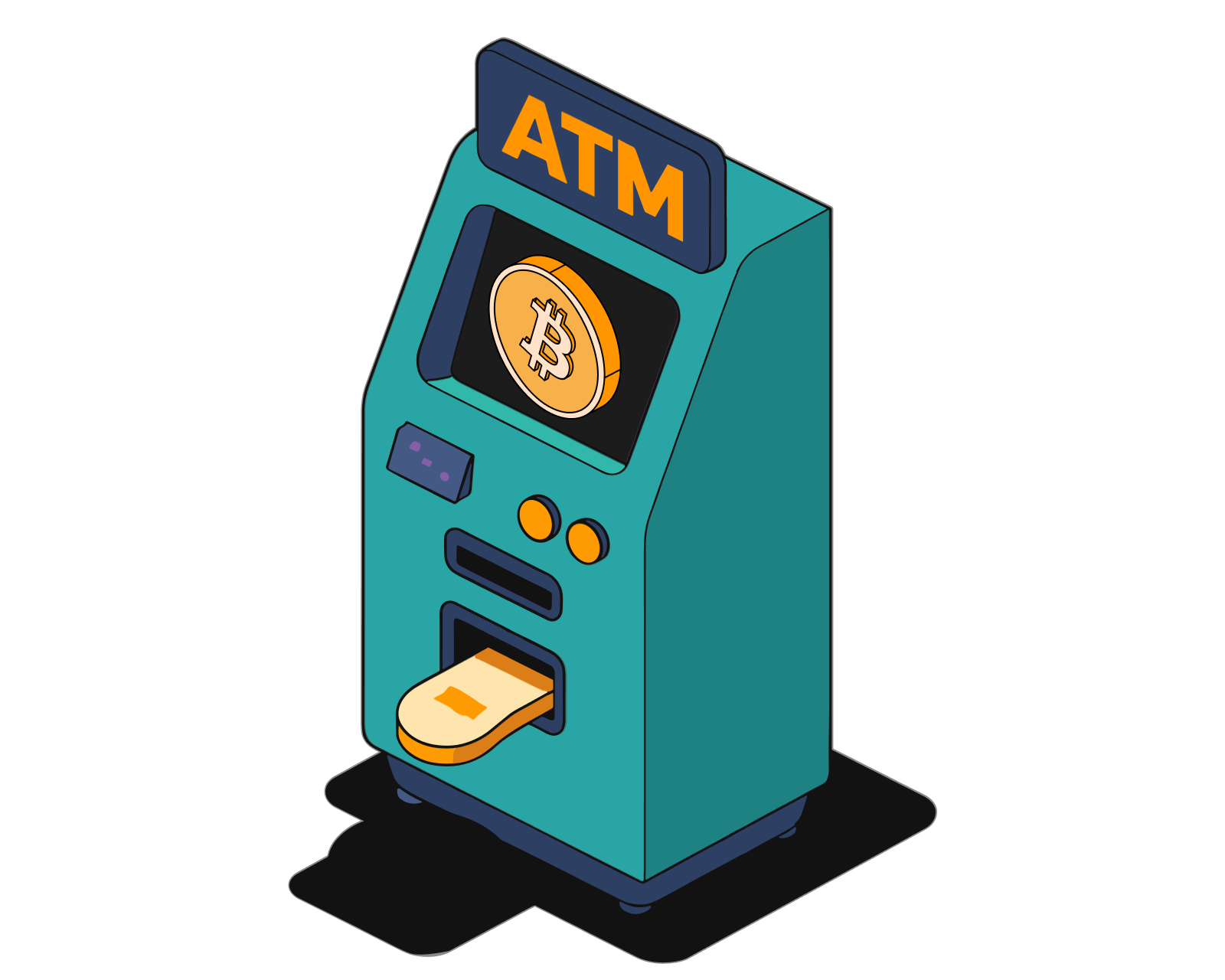
Crypto Tax Guide 2026
From Bitcoin to DeFi, NFTs, and staking rewards, every crypto transaction can create tax obligations. This guide explains global crypto tax rules, taxable events, and strategies to reduce liabilities.

Crypto Tax Guide 2026
From Bitcoin to DeFi, NFTs, and staking rewards, every crypto transaction can create tax obligations. This guide explains global crypto tax rules, taxable events, and strategies to reduce liabilities.

Cryptocurrency taxation in the UK
Get an overview of tax law as it applies to cryptocurrency in the United Kingdom.

Cryptocurrency taxation in the UK
Get an overview of tax law as it applies to cryptocurrency in the United Kingdom.

Cryptocurrency taxation in Germany
Get an overview of tax law as it applies to cryptocurrency in Germany.

Cryptocurrency taxation in Germany
Get an overview of tax law as it applies to cryptocurrency in Germany.

Crypto Taxes in the U.S.: Complete 2026 Guide
The IRS treats cryptocurrency as property, meaning every trade, sale, or income event is taxable. This guide explains IRS rules, forms, and strategies to report crypto correctly and reduce liabilities.

Crypto Taxes in the U.S.: Complete 2026 Guide
The IRS treats cryptocurrency as property, meaning every trade, sale, or income event is taxable. This guide explains IRS rules, forms, and strategies to report crypto correctly and reduce liabilities.

Canada Crypto Taxes in 2026: What the CRA Expects
A clear guide to how the CRA treats cryptocurrency as property, when gains are taxable, and how staking, mining, NFTs, and cross-border holdings should be reported to the CRA.

Canada Crypto Taxes in 2026: What the CRA Expects
A clear guide to how the CRA treats cryptocurrency as property, when gains are taxable, and how staking, mining, NFTs, and cross-border holdings should be reported to the CRA.

Crypto Airdrop Tax Guide 2026
Cryptocurrency airdrops may feel like free money, but tax authorities treat them as taxable income. This guide explains IRS rules, global tax treatment, reporting forms, and strategies to reduce liabilities.

Crypto Airdrop Tax Guide 2026
Cryptocurrency airdrops may feel like free money, but tax authorities treat them as taxable income. This guide explains IRS rules, global tax treatment, reporting forms, and strategies to reduce liabilities.
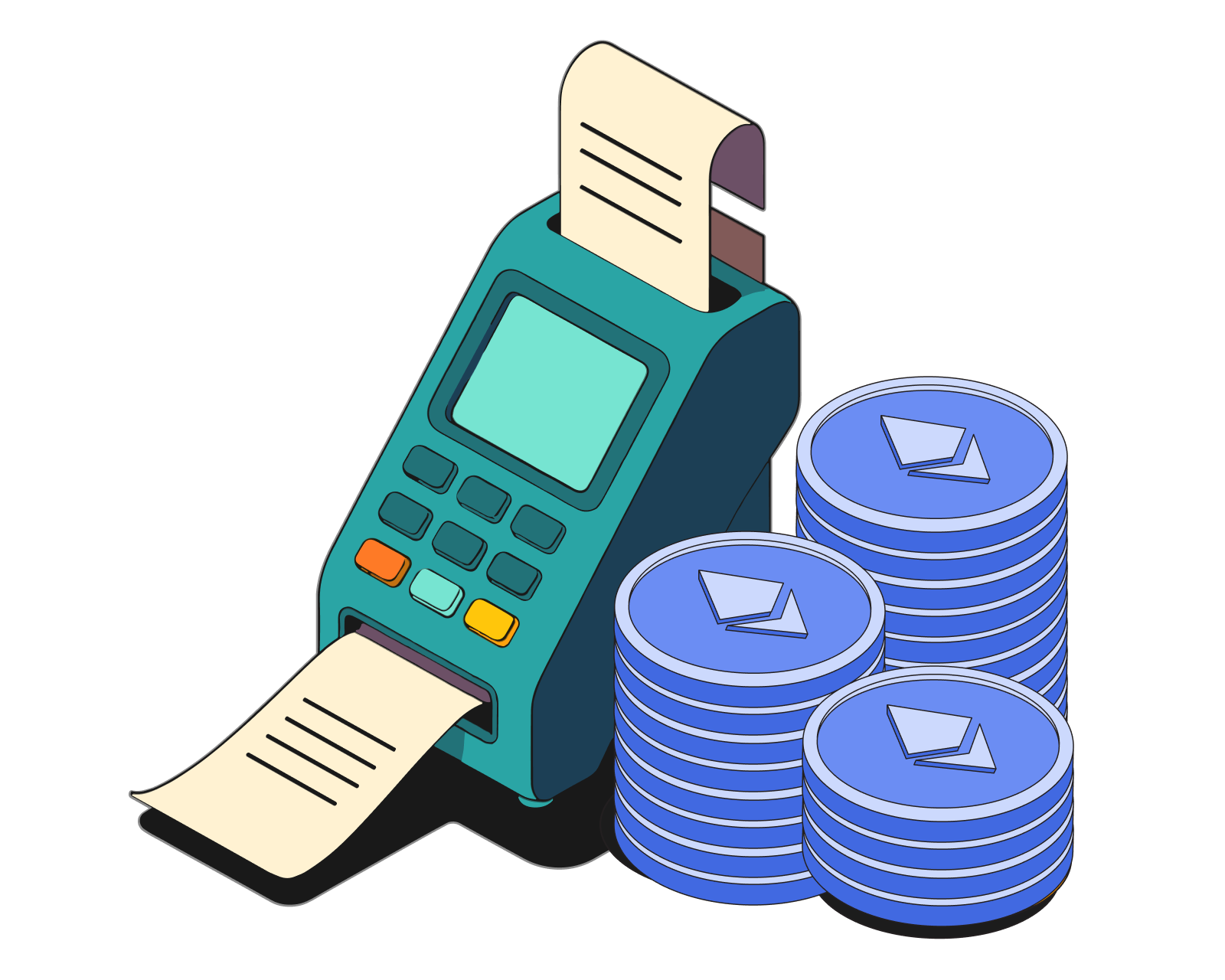
ICO Taxation Explained: Global 2026 Guide
ICOs create unique tax obligations for investors, traders, and founders. This guide explains how ICOs are taxed worldwide, covering utility vs. security tokens, taxable events, cross-border compliance, and reporting strategies.

ICO Taxation Explained: Global 2026 Guide
ICOs create unique tax obligations for investors, traders, and founders. This guide explains how ICOs are taxed worldwide, covering utility vs. security tokens, taxable events, cross-border compliance, and reporting strategies.

Bitcoin Mining Tax Reporting Guide 2026
Bitcoin mining rewards are taxable as ordinary income when received, with additional capital gains when sold. This guide explains global tax rules, reporting requirements, deductible expenses, and compliance strategies.

Bitcoin Mining Tax Reporting Guide 2026
Bitcoin mining rewards are taxable as ordinary income when received, with additional capital gains when sold. This guide explains global tax rules, reporting requirements, deductible expenses, and compliance strategies.
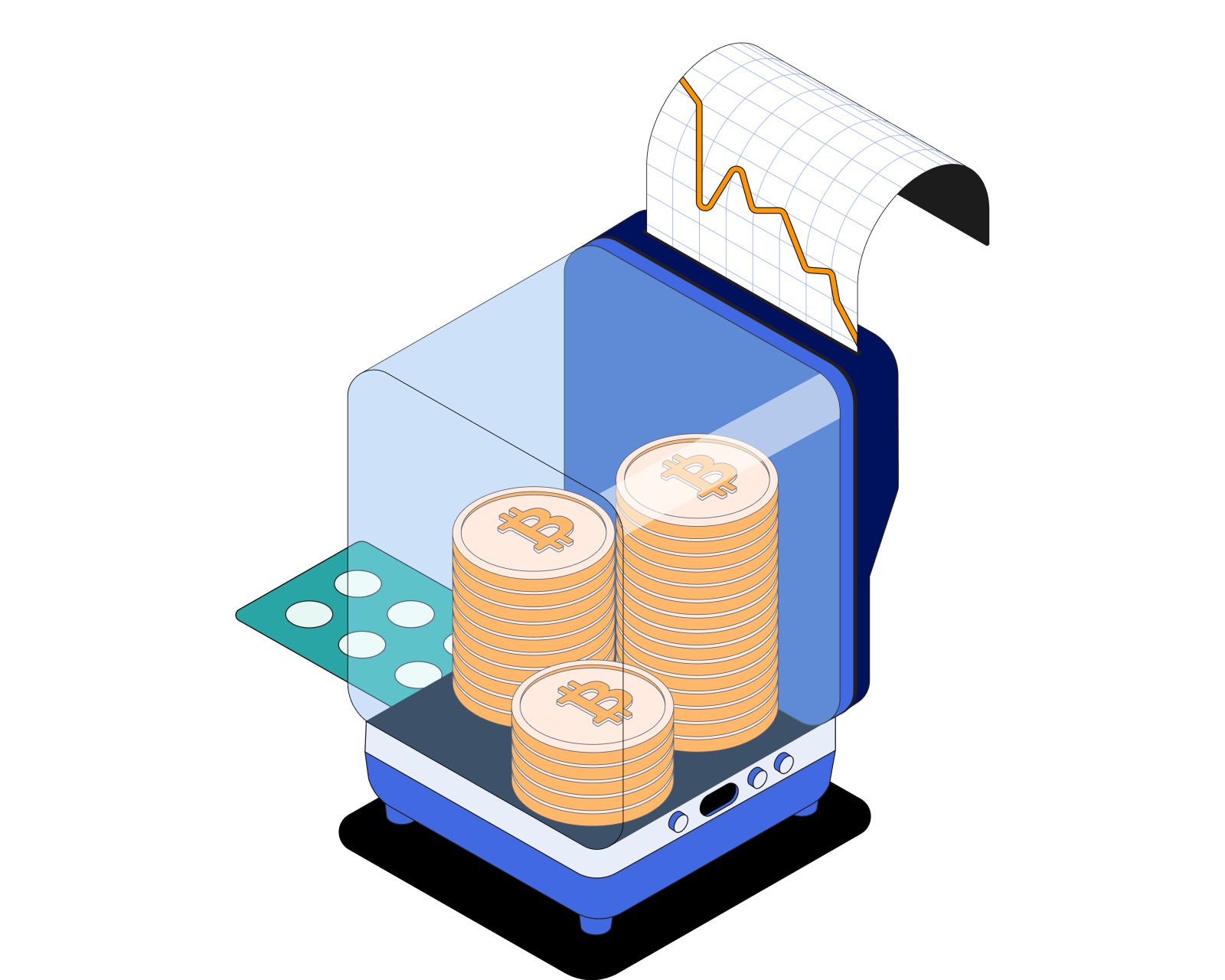
Staking Income Tax Reporting Guide 2026
Staking rewards are taxable in most jurisdictions and must be reported correctly. This guide explains IRS, CRA, HMRC, and ATO rules for staking income, covering taxable events, fair market value tracking, and compliance strategies.

Staking Income Tax Reporting Guide 2026
Staking rewards are taxable in most jurisdictions and must be reported correctly. This guide explains IRS, CRA, HMRC, and ATO rules for staking income, covering taxable events, fair market value tracking, and compliance strategies.
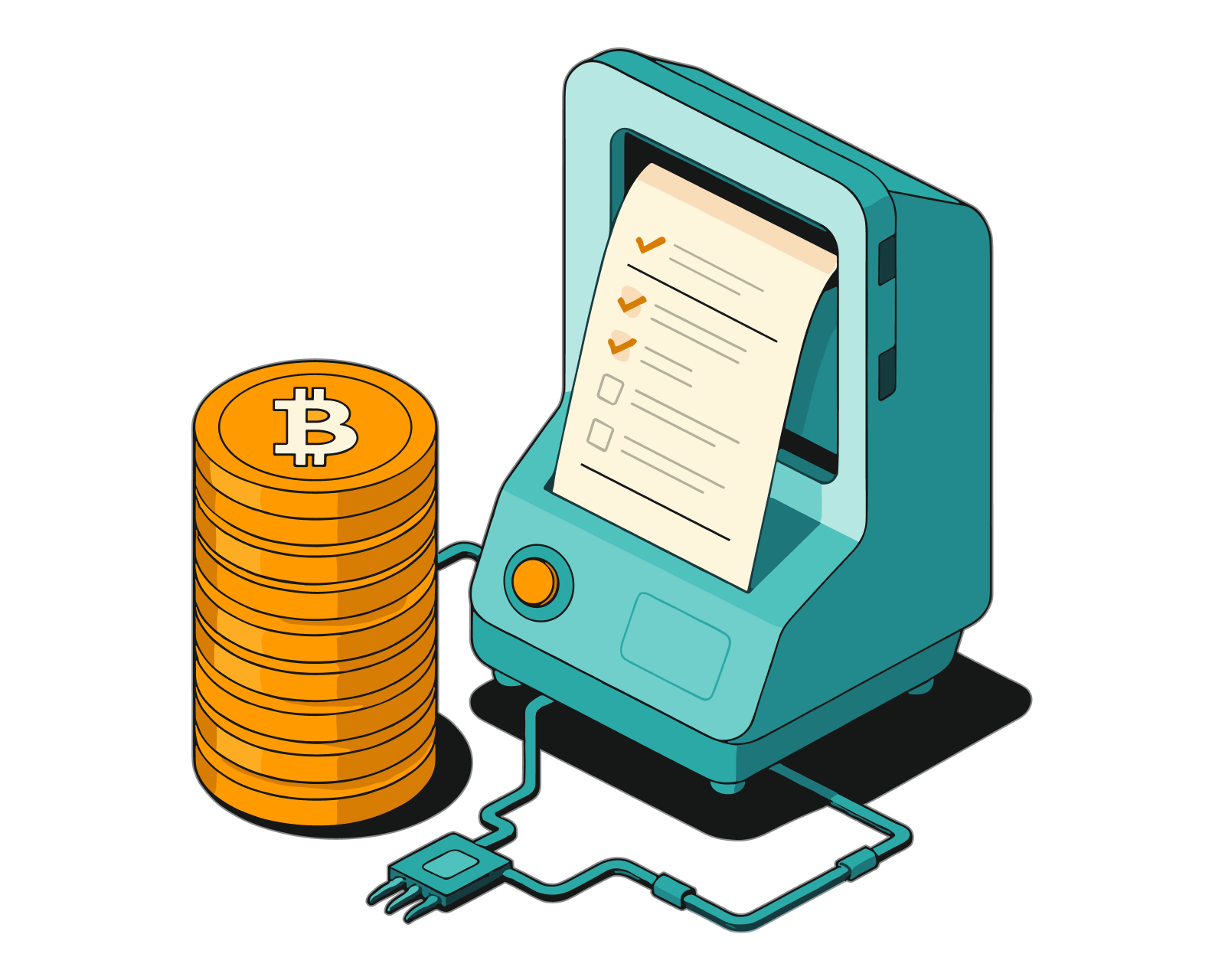
Yield Farming Tax Reporting Guide 2026
Yield farming rewards are taxable income in most jurisdictions. This guide explains how to classify DeFi rewards, track fair market value, calculate capital gains, and report yield farming income correctly.

Yield Farming Tax Reporting Guide 2026
Yield farming rewards are taxable income in most jurisdictions. This guide explains how to classify DeFi rewards, track fair market value, calculate capital gains, and report yield farming income correctly.
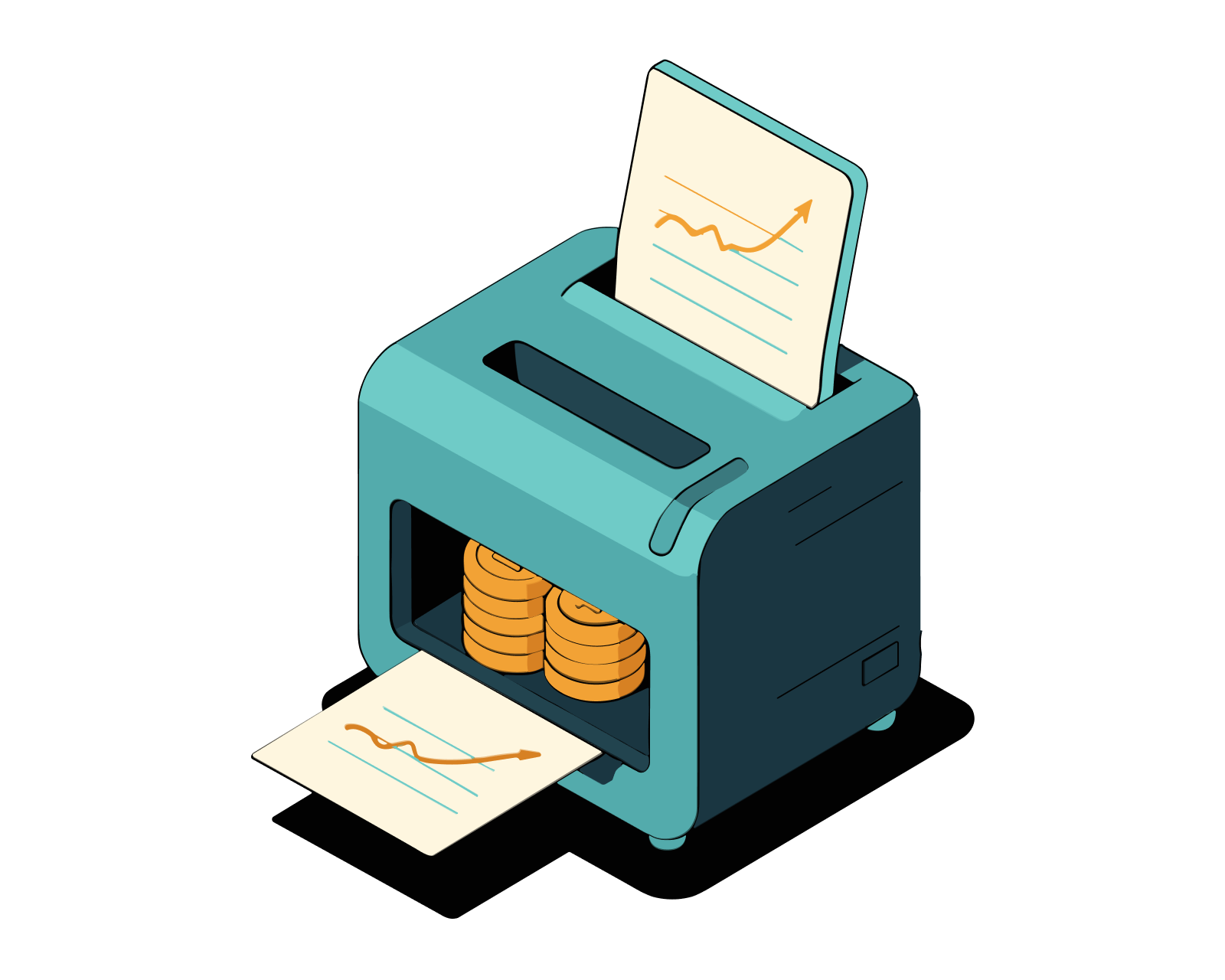
Crypto Rewards Tax Guide 2026
From staking and mining to DeFi yield farming and NFTs, crypto rewards can create taxable income. This guide explains how different rewards are taxed globally and how to report them correctly.

Crypto Rewards Tax Guide 2026
From staking and mining to DeFi yield farming and NFTs, crypto rewards can create taxable income. This guide explains how different rewards are taxed globally and how to report them correctly.

What are NFTs?
Learn about NFTs, how they work, examples of prominent NFTs, and much more.

What are NFTs?
Learn about NFTs, how they work, examples of prominent NFTs, and much more.
STAY AHEAD IN CRYPTO
Stay ahead in crypto with our weekly newsletter delivering the insights that matter most
Weekly crypto news, curated for you
Actionable insights and educational tips
Updates on products fueling economic freedom
No spam. Unsubscribe anytime.
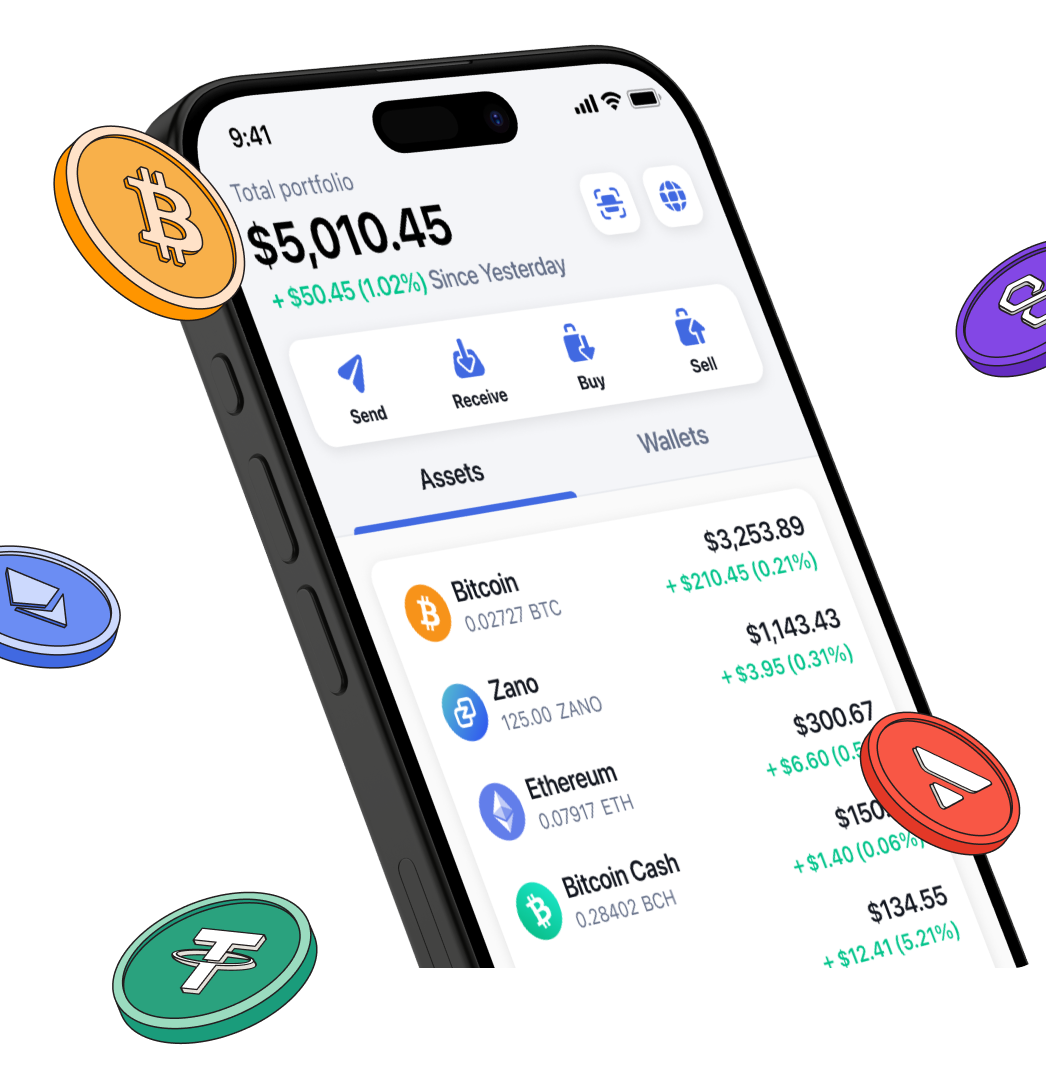
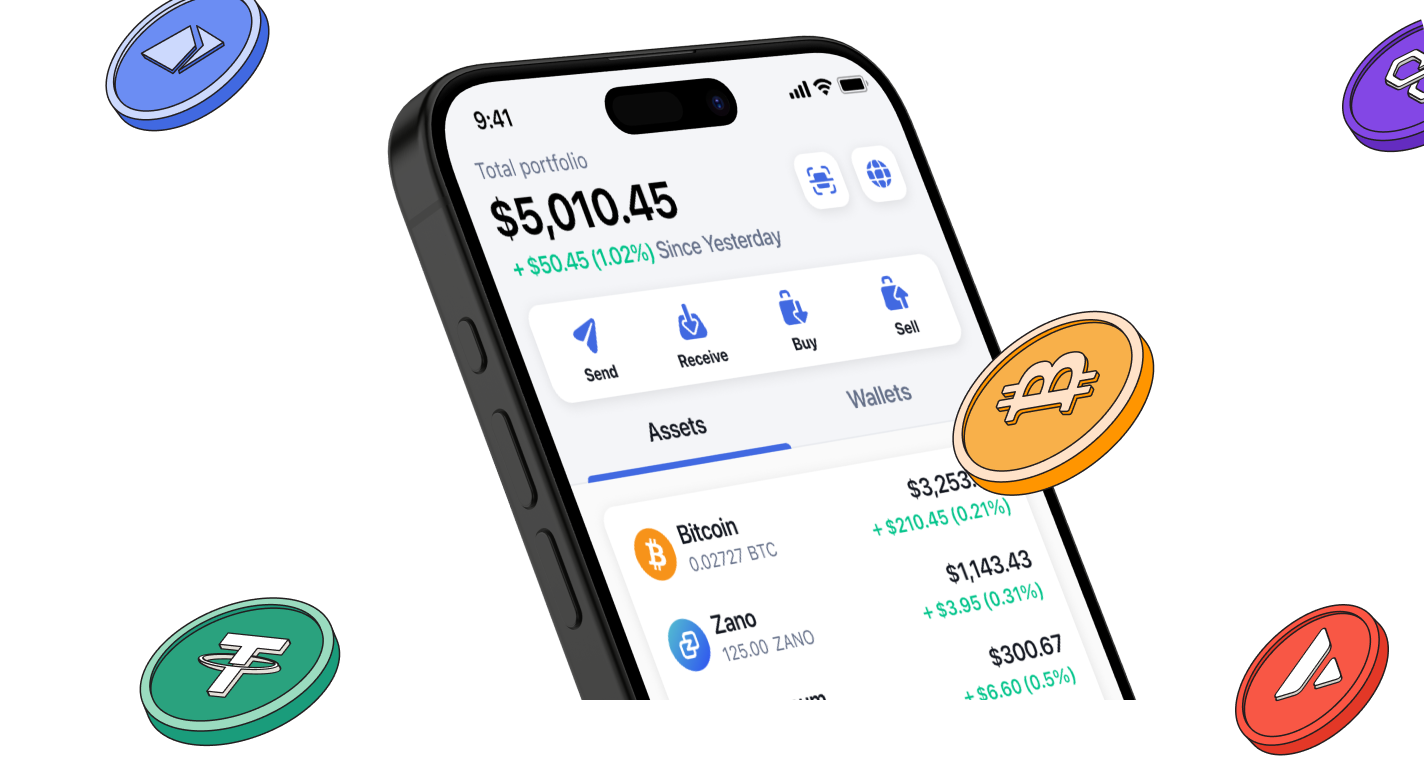
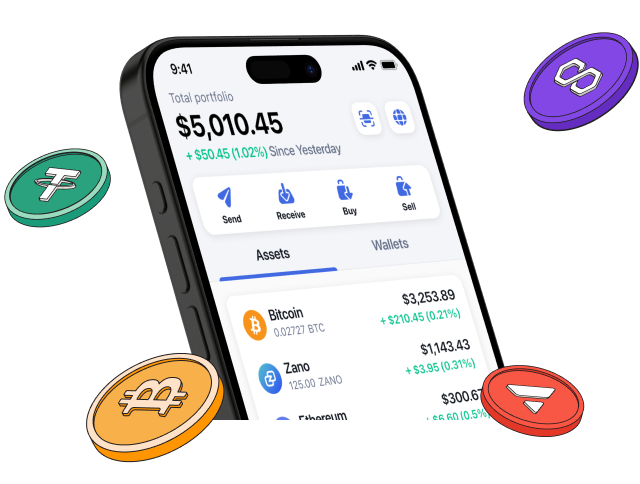
Start investing safely with the Bitcoin.com Wallet
Over wallets created so far
Everything you need to buy, sell, trade, and invest your Bitcoin and cryptocurrency securely

© 2026 Saint Bitts LLC Bitcoin.com. All rights reserved


